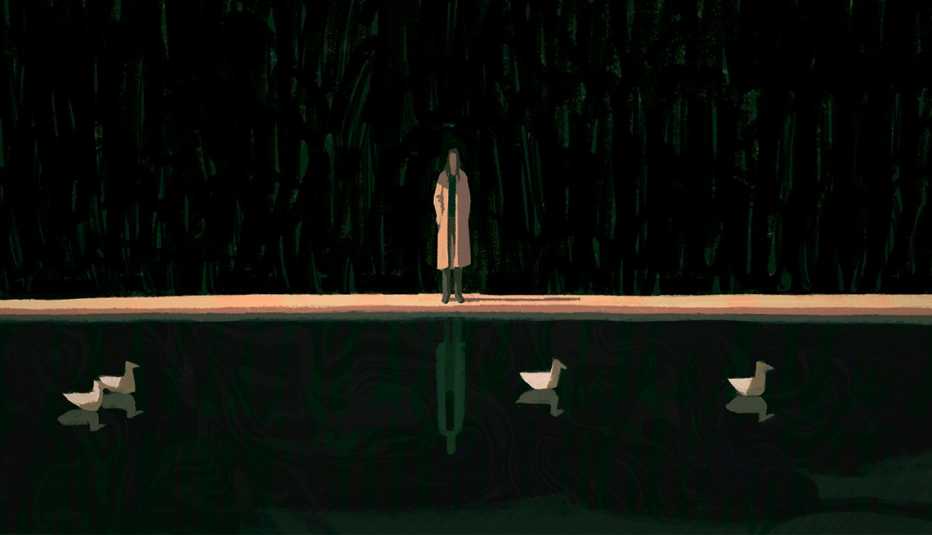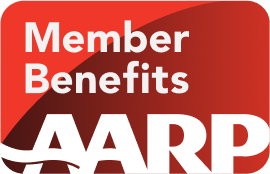Staying Fit


Chapter 15
Sunday, May 29, 2016
NIAMH HORRIGAN'S PARENTS have great faith in the Garda Síochána.
That’s what they say on the news when the anchorwoman asks them if they believe the Gardaí are doing everything they can.
I’ve barely slept, waiting for Roly to call, and now I’m out of bed, showered, room-service oatmeal and coffee half-finished on a tray at the end of the bed. It’s 7:10 a.m. and he still hasn’t called, and my mind is going a thousand miles an hour trying to imagine what that means. Maybe there was a mistake and it is Erin up there. Maybe Roly doesn’t know how to tell me. Maybe it’s like he said, it wasn’t Erin, but in the meantime, they’ve found her, buried nearby.


AARP Membership— $12 for your first year when you sign up for Automatic Renewal
Get instant access to members-only products and hundreds of discounts, a free second membership, and a subscription to AARP the Magazine.
“We just want her home,” Niamh’s father says, looking into the camera in a way that I know means someone has coached him. He’s a tall, good-looking older man, with graying hair and a beige outfit that was probably a recommendation of the coach, too. If the guy who has Niamh is watching, they don’t want the dad to push any buttons for him. He needs to be neutral, loving, concerned, but not angry or challenging or possessive. The mom is pretty, blond, subdued, but I don’t like the royal blue blazer they chose for her. It’s too masculine, too businesslike, the color too strong. Her voice rises as she says, “Please contact the Gardaí if you know anything that could help bring our daughter home.” I feel like swearing. They should have had her say “Niamh” to humanize the victim. I give them a five out of ten.
My cell phone buzzes on the bed and I scramble for it. “Roly?”
“Yeah, hiya, D’arcy. Sorry I’m just ringing you. It’s been a long night. We don’t know a lot about the remains yet, but I can tell you what we’ll release to the press later today.”
I mute the TV and say, “Hang on, Roly. You gotta tell whoever’s advising Niamh’s family that the mom needs to be softer. She needs to feel like an ally to our guy, you know?”
“They’re on it, D’arcy. Don’t worry. Here’s what they’ve got so far on the excavation. We’ll be making most of this public to try to get a match. Yesterday the techs recovered most of an intact skeleton. Analysis of pubic symphysis indicates the victim was likely early twenties. We did not find parturition scars on the pelvis, but as you know some of that science has been questioned. Path said she’s fairly confident saying female, early twenties, no parturition.”
“Any cause of death?”
He doesn’t say anything.
“Skull trauma?” It’s one of the only things they’d be able to find this quickly. Strangulation, maybe, but not always. Drug overdose, or suffocation, you’re not going to see it.
I can hear him hesitating. “Examination revealed two points of blunt impact on the right temporal bone. That part won’t be public.”
“Of course,” I say. “And dental comparison says it’s not Erin.”
“That’s right. They’ve excavated in a radius around the remains and there don’t seem to be anymore. But of course we’ll continue looking.”
“Anything else?”
“Not at the moment.” There’s something else, but he won’t tell me.
“So who is it?” I demand. “If it’s not Erin, who is it?”
I can hear him hesitating. “We don’t have an ID. Path dates the burial to 1992 or a few years later.”
“Based on what?”
“Can’t tell you.”
I go to the window, look out over College Green. The city’s waking up and I watch a young woman wearing a red jacket make her way along the sidewalk and through the Trinity gates. “Roly, if Erin’s scarf was in the grave with her, then the victim must have died around the time Erin was there, right? How did the scarf end up with the body? Whose blood is it? Was there any evidence to suggest that someone else was with this woman, whoever she was?”
“We don’t know.” I can feel it again, whatever it is he’s not telling me.
“Do you think Erin was there?”
“That’s the question, isn’t it?” There’s an ugly little bubble of silence that almost makes me gasp.
I force myself to breathe. “I should call my uncle.”
“Yeah. You do that. I’ll be in touch. Okay?” He puts a soft little spin on it, reaching out, trying to soothe me. “I’m heading down to Wicklow so I may be out of touch. We’ve got some stuff going on in another case, too, so I’m going to be out straight. I’ll let you know if anything comes up. Hopefully we’ll know something soon, D’arcy.”
He’s gone before I can ask any more questions.
I tell Uncle Danny the news. “I’m so sorry, Uncle Danny. I’m having a hard time with this, too.” “Oh God, Mags, I didn’t want it to be her, but I wanted to know, you know?”
“Yeah, it’s totally normal.”
“But why was her scarf with the ... why was it there?” I can hear glasses clinking. He’s unloading the dishwasher, keeping himself busy, trying to cope. “Is it this girl who’s missing?”
“No. The remains have been there too long for that. We just don’t know. There may have been some connection between Erin and whoever is there.” I say it again: “We just don’t know. I’ll tell you as soon as I hear something. Are you okay? You know you can go over to the house and hang out with Lilly and Brian any time you want, right? They’d be happy to have you.”


































































More From AARP
Free Books Online for Your Reading Pleasure
Gripping mysteries and other novels by popular authors available in their entirety for AARP members